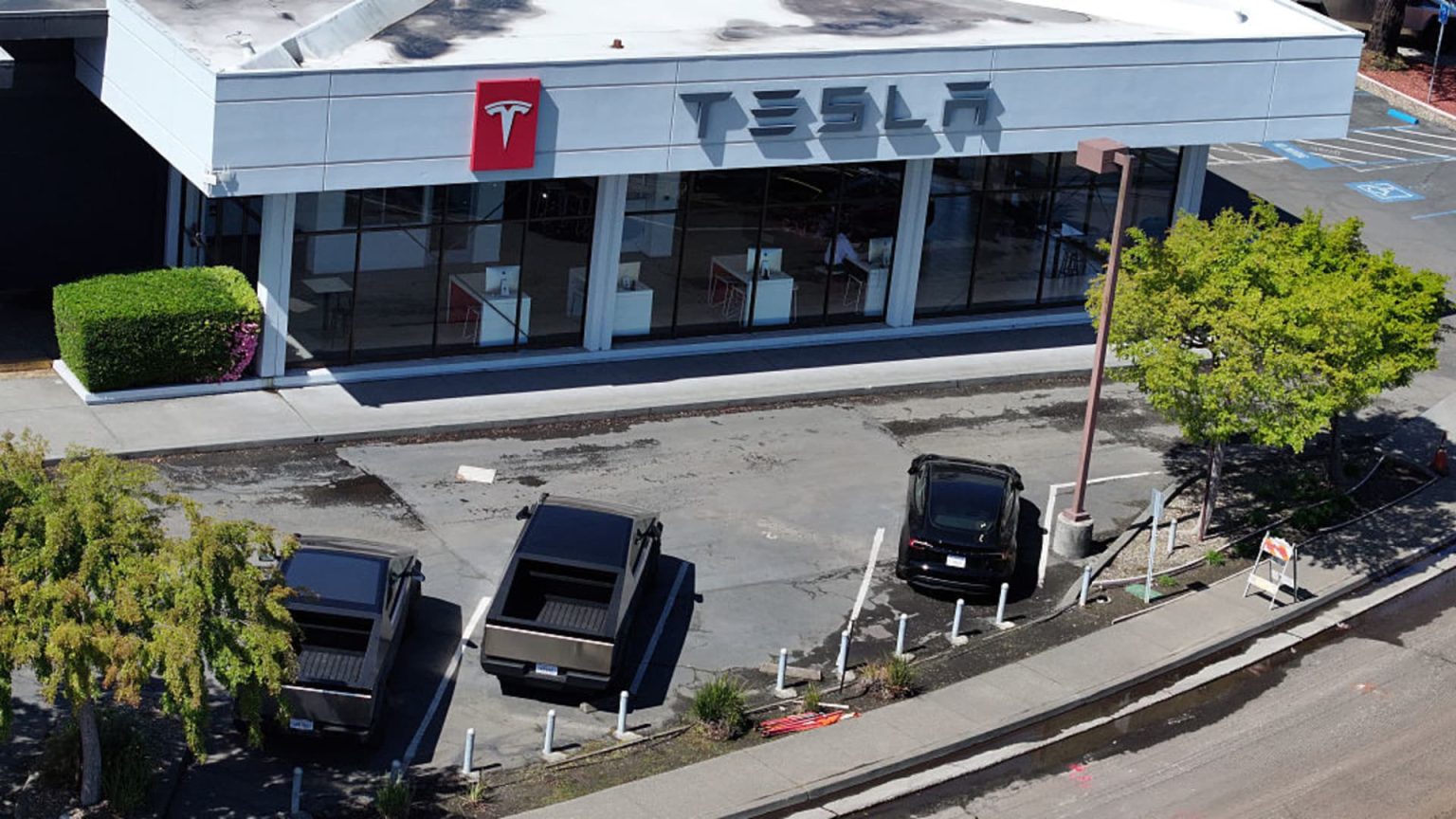In a tumultuous year for shareholders, Tesla has emerged as the leading stock decliner among major technology companies, facing fierce competition and scrutiny. The company’s stock price has plummeted significantly, triggering substantial gains for short sellers betting against the electric vehicle manufacturer. Analysts predict a challenging landscape ahead as Tesla prepares to report its quarterly earnings amidst growing concerns over production costs and market share, particularly in the competitive Chinese electric vehicle market.
| Article Subheadings |
|---|
| 1) Tesla’s Stock Decline and Market Performance |
| 2) Short Sellers Reap Profits Amidst Turmoil |
| 3) Challenges in the Electric Vehicle Market |
| 4) Musk’s Relationship with Short Sellers |
| 5) Future Outlook for Tesla |
Tesla’s Stock Decline and Market Performance
Tesla’s stock has faced immense pressure throughout the year, shrinking by more than 44% and marking its most substantial decline since 2022. Analysts are noting that the troubling trends are not isolated, as the company reported a significant 36% dip in the first quarter alone. The CEOs of major tech companies, including Tesla’s Elon Musk, are apprehensive about tariff impacts due to President Donald Trump‘s policies, which could inflate manufacturing costs for parts essential to electric vehicle production. This environment of uncertainty has led to intensified scrutiny from investors and analysts alike.
Short Sellers Reap Profits Amidst Turmoil
Short sellers are enjoying a profitable phase, having generated approximately $11.5 billion in profits from shorting Tesla’s stock in the last year. This remarkable figure highlights the market’s conditions that favor short positions against stocks that are struggling. The electric vehicle maker’s ongoing stock challenges have positioned it as one of the most shorted stocks in the market, ranking third with $17.6 billion in shares sold short. The short-selling frenzy indicates a lack of confidence in Tesla’s near-term prospects, especially with rising input costs and declining sales metrics.
Challenges in the Electric Vehicle Market
The issues that Tesla faces extend beyond domestic challenges. The company is grappling with fierce competition in the electric vehicle sector, especially from lower-cost manufacturers in China.
In addition, Tesla’s bid to enter the robotaxi market is currently overshadowed by Alphabet’s successful deployment of its driverless vehicles in the U.S. This raises questions about Tesla’s ability to innovate and keep pace in a rapidly advancing industry. The anticipated launch of Tesla’s driverless ride-hailing service in Austin, Texas, planned for June, will be crucial as the company seeks to reestablish its relevant position in the market.
Musk’s Relationship with Short Sellers
Over the years, Elon Musk has publicly derided short sellers, a sentiment stemming from his complex relationship with them during the years Tesla has been publicly traded. During a strong rally in 2020, Musk even went so far as to mock short sellers by promoting red satin shorts. This demonstrated his contempt for those betting against the company’s success, yet the fate of stock values remains fickle, with short sellers often finding profit amid stock downturns. Musk’s comments are also enriched by his tumultuous history with stock market speculation, occasionally resulting in legal disputes.
Future Outlook for Tesla
Looking ahead, the outlook for Tesla remains uncertain as it navigates numerous challenges. Analysts are closely watching the imminent quarterly earnings report, with expectations of a slight decline in year-over-year revenue. The current climate is steeped in risk for Tesla, necessitating innovative solutions to regain market share and investor confidence. The company’s ability to adapt pricing strategies and enhance competitive positioning will be pivotal as the electric vehicle market undergoes substantial transformations.
| No. | Key Points |
|---|---|
| 1 | Tesla’s stock has dropped 44% this year, marking its worst performance since 2022. |
| 2 | Short sellers have profited significantly, generating approximately $11.5 billion from Tesla’s stock. |
| 3 | The company faces intense competition in the electric vehicle market, particularly from Chinese manufacturers. |
| 4 | Musk’s antagonism toward short sellers has been well-documented, reflecting his complex relationship with market speculation. |
| 5 | Tesla’s upcoming earnings report is expected to show a slight revenue decline amid ongoing industry challenges. |
Summary
The outlook for Tesla remains challenging as it navigates through a significant stock decline and increased competition in the electric vehicle market. The company’s ongoing struggles have provided fertile ground for short sellers, illustrating a broader level of skepticism regarding Tesla’s immediate future. As the earnings report approaches, all eyes will be on how the company addresses its challenges and responds to mounting pressures, which could ultimately reshape its trajectory in a rapidly evolving industry.
Frequently Asked Questions
Question: What factors have contributed to Tesla’s stock decline this year?
Various factors, including increased competition in the electric vehicle market, concerns over input costs due to tariffs, and a decline in vehicle deliveries have contributed to the stock’s significant decline.
Question: How are short sellers impacting Tesla?
Short sellers have capitalized on Tesla’s stock decline, generating remarkable profits in the process. This has reflected a lack of confidence among some investors concerning Tesla’s future performance.
Question: What is the significance of Tesla’s upcoming earnings report?
The upcoming earnings report is significant as it is expected to show a slight decrease in year-over-year revenue, which may provide insights into the company’s current trajectory and recovery plans amid industry challenges.


